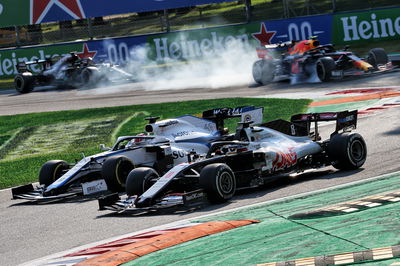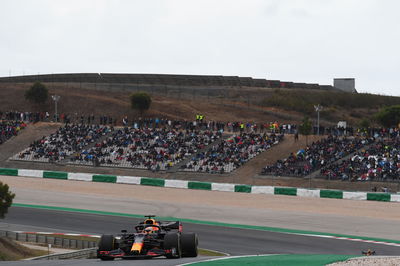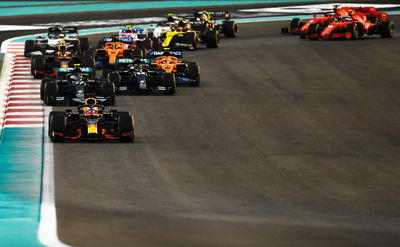Everything you need to know that was decided in F1’s key meeting

Formula 1 held its latest meeting of the F1 Commission today, which featured positive discussions on a number of key issues.
An engine freeze, final 2021 F1 calendar and format changes to the race weekend were among the most significant matters on the agenda during the virtual meeting which took place on Thursday.
Here is a rundown of all the subjects that were discussed and what outcome was agreed by F1’s stakeholders for each of them…
Engine freeze approved, new power unit rules objectives laid out
All 10 teams and the four power unit manufacturers unanimously voted to approve the introduction of a freeze to engine development from 2022 in what F1 described as a “significant development for the sport that reflects the unity and collaborative spirit between the FIA, Formula 1 and the teams”.
A vote on the matter followed heavy lobbying from Red Bull, which was seeking to take over Honda’s engine project following the Japanese manufacturer’s exit from the sport at the end of the year.
With the freeze from next season approved, Red Bull can now go ahead and finalise a continuation deal with Honda.
As a result, new power unit regulations are to be brought forward by a year to 2025, with F1 establishing a “high-level working group” including current and potential power unit manufacturers and fuel suppliers to define the next generation of F1 engines.
The key goals outlined by the FIA are to create a “powerful and emotive” engine design, reduce costs and achieve carbon neutrality with an environmentally sustainable approach that has social and automotive relevance using fully sustainable fuels to help attract potential new power unit manufacturers.
The FIA also confirmed that F1 and a number of teams have achieved the highest level of FIA Environmental Accreditation. A guide outlining how the rest of the teams can achieve this was set out in the meeting and the goal is set to be included in the F1 Sporting Regulations.

Changes to the race weekend format
F1’s proposal to revamp the weekend format by trialing a new shorter 100km ‘sprint’ race on Saturdays of grand prix at races in Canada, Italy and Brazil this year received a positive response from the teams.
It comes as part of F1’s bid to engage fans in new ways and create added excitement to the racing. The idea would see Friday’s second practice scrapped at these events and replaced by qualifying for the shorter Saturday race, which would then determine the grid for Sunday.
F1 said there was “broad support from all parties” for a new qualifying format at select rounds, and a working group has now been tasked with creating a final plan with the aim of reaching a decision before the start of the upcoming 2021 season.
Intention for Portuguese GP to be confirmed as third round
On Thursday, F1 officially communicated to the teams its intention to fill the current ‘TBC’ space on the latest version of the 2021 F1 calendar with the Portuguese Grand Prix.
Pending final agreement subject to contract with the promoter, Portimao will return to the calendar to host the third round of the season on 2 May.
F1 noted that changing circumstances “may require flexibility” but reaffirmed it is working at all levels with governments and local organisations to ensure that the calendar can go ahead as planned under continued robust COVID-19 protocols.

Further cost control measures
Talks are ongoing over the future introduction of a salary cost cap for drivers and the highest-paid earners within teams.
Various topics were tabled about how this can be achieved over the coming years and a working group - including the drivers themselves - will be created to discuss the matter of driver and senior team management contracts further.
Other regulation changes
The FIA has proposed, following a request by Pirelli, to permit a more “equitable distribution” of tyre testing throughout 2021, which will take into consideration the challenges of COVID-19 and the impending move to 18-inch tyres in 2022.
After unanimous agreement, the number of test days allocated will be increased from 25 to 30.












